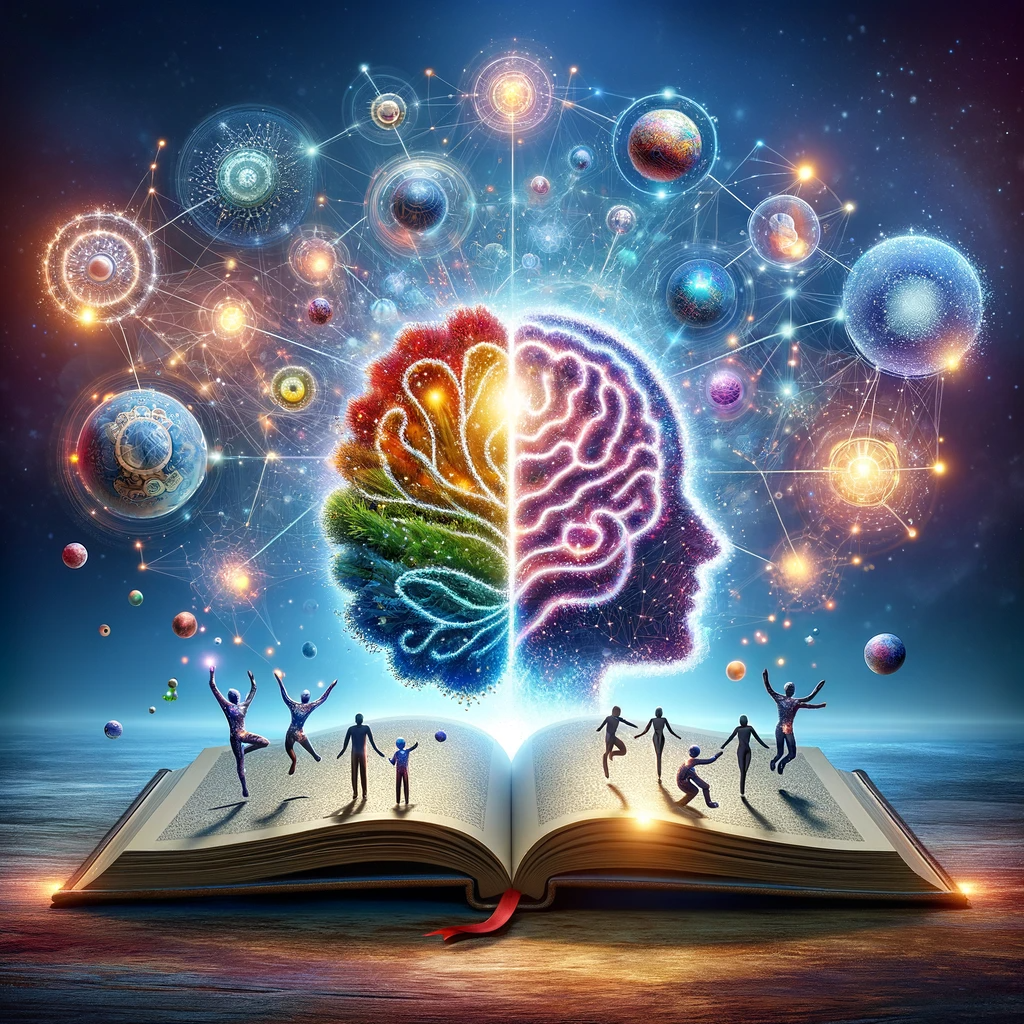Introduction
Master Your Emotions: Emotions are pivotal in shaping our lives and interactions. While some excel in managing their feelings, others struggle. However, with the right approach, mastering your emotions becomes achievable.
This blog post guides you through developing emotional intelligence, a key to understanding and regulating emotions effectively.
Enhancing emotional intelligence gives you control over your responses, improving your overall quality of life. Learn to master your emotions, enriching your personal and professional relationships.
Table of Contents
“Master your emotions” means enhancing your emotional intelligence and taking control of the story of your life. This advice can assist you in handling challenging situations and enable you to accomplish your objectives swiftly and confidently.
This guide offers the tools and insights to navigate emotions, leading you toward a more fulfilling and balanced existence.
Master Your Emotions: Strategies and Techniques
Develop Self-Awareness: The first step in mastering your emotions is to become more self-aware of your emotional state.
Attention to your thoughts, feelings, and bodily sensations can help you understand your reactions and triggers.
This mindfulness helps recognize what provokes your emotional responses and facilitates better emotional management. This can help you better understand your emotions and manage them effectively.
For instance, when you notice a particular thought or sensation, you can take a deep breath and pause before reacting.
By doing so, you can respond to situations more constructively and avoid getting overwhelmed by your emotions.
Mindfulness: Mindfulness involves being present at the moment and observing thoughts and feelings without judgment.
Practicing mindfulness enhances emotional awareness and management.
Learn to Regulate Your Emotions: Emotional regulation involves managing emotions healthily. This can include developing coping strategies such as deep breathing, meditation, journaling, and learning to reframe negative thoughts and beliefs.
This can include developing coping strategies such as deep breathing, meditation, journaling, and learning to reframe negative thoughts and beliefs.
Build Emotional Resilience: Emotional resilience refers to the capacity of an individual to recover from difficult situations and setbacks.
Practicing self-care, establishing a supportive network, and fostering positive thoughts can lead to this achievement.
Strengthen Interpersonal Relationships: Strong interpersonal relationships are essential for emotional well-being.
Enhancing communication skills and effectively managing emotions, critical aspects of emotional intelligence can significantly improve relationships.
This development in emotional skills and communication leads to a more fulfilling and enriched life.
Are you tired of feeling overwhelmed by your emotions? Do you struggle to manage complicated feelings like anxiety, anger, or depression?
Mastering your emotions can be a powerful tool for improving overall well-being and achieving greater emotional intelligence.
You can attain greater happiness and fulfillment by mastering effective emotional coping strategies, building resilience, and enhancing relationships.
This article will explore various topics, including emotional intelligence, coping strategies, self-awareness, and more, to help you master your emotions and live your best life.
Emotional Intelligence
Emotional intelligence is centred on recognizing and managing one’s emotions and understanding and empathizing with others.
Developing emotional intelligence leads to greater resilience, better interpersonal relationships, and improved overall well-being.
This is achieved through self-awareness, mindfulness, and effective communication.
Emotional quotient (EQ), people skills, and relationship skills, integral to emotional intelligence, play a vital role in mastering emotions. Developing these skills contributes to personal growth and enhances professional advancement.
Emotional quotient (EQ), people skills, and relationship skills, integral to emotional intelligence, play a vital role in mastering emotions.
Developing these skills contributes to personal growth and enhances professional advancement.
1. Emotional Quotient (EQ): EQ involves individuals’ capacity to identify, understand, and manage their emotions while comprehending others’ feelings. These skills are essential for effective interpersonal interactions and emotional intelligence.
Emotional self-awareness, empathy, and emotional regulation are vital in managing social interactions and forming positive connections.
These skills not only aid in understanding oneself but also in building meaningful relationships.
2. People Skills: People skills refer to an individual’s ability to interact effectively with others.
These skills not only aid in understanding oneself but also in building meaningful relationships.
3. Relationship Skills: Relationship skills refer to an individual’s ability to build, maintain, and strengthen relationships with others.
This involves empathy, trust-building, and effective communication, which can help individuals foster positive relationships with others in both personal and professional settings.
These three elements of emotional intelligence are crucial for navigating social situations, building solid relationships, and achieving success in life.
Developing emotional quotient, people, and relationship skills can boost communication, lessen conflicts, and deepen relationships.
Coping Strategies
Coping strategies are techniques for managing difficult emotions such as anxiety, depression, and anger.
They can include deep breathing, meditation, journaling, or seeking support from others.
This approach centred on empathy, trust-building, and effective communication, aids in mastering your emotions and cultivating positive personal and professional relationships.
By focusing on these skills, individuals can navigate social situations more skillfully, fostering stronger connections in all aspects of life.
Learning problem-solving skills, stress management techniques and resilience-building techniques are also all critical components of coping strategies.
1. Problem-solving skills involve identifying, analyzing, and effectively addressing problems constructively and effectively.
This includes simplifying complex problems into smaller parts, generating creative solutions, and assessing the effectiveness of different strategies.
2. Stress management techniques: Stress management techniques involve practices that help individuals to reduce or manage stress and anxiety.
Techniques like deep breathing, mindfulness, and physical exercise play a vital role in achieving calmness and relaxation.
These methods effectively promote a sense of peace and aid in stress reduction.
3. Resilience-building techniques: Building resilience involves practices that help individuals cope with adversity.
Techniques like positive self-talk, seeking social support, and engaging in activities that enhance well-being are vital in this process.
Together, these three coping strategies can help individuals manage stress, overcome challenges, and build the resilience they need to succeed in all areas of life.
Cultivating problem-solving skills and stress management, integral to emotional intelligence, reduces stress and enhances focus. These practices also contribute to building more robust, meaningful relationships, underlining the importance of personal and professional growth.
Self-Awareness
Becoming mindful of your inner experiences involves closely observing your thoughts, emotions, and bodily sensations.
This process helps in recognizing recurring patterns and pinpointing what sparks various emotional reactions.
Self-awareness allows for deeper understanding and better control of emotions, achievable through mindfulness, journaling, or feedback from others.
Self-reflection, self-knowledge, and self-understanding are crucial for establishing self-awareness.
1. Self-reflection: Self-reflection involves examining one’s thoughts, feelings, and behaviours and considering how they impact oneself and others.
This can include journaling, meditation, or other techniques to help gain greater insight into one’s experiences.
2. Self-knowledge: Self-knowledge involves having a deep understanding of one’s strengths, weaknesses, values, and goals.
This can include taking personality assessments, seeking feedback, or engaging in other activities to help gain greater self-awareness.
3. Self-understanding: Self-understanding involves having a clear understanding of one’s own emotions, beliefs, and motivations.
Exploring feelings and experiences, seeking therapy or counselling, and participating in activities for self-insight are methods to understand one’s psyche.
Together, these three self-awareness elements can help individuals better understand themselves, their experiences, and how they relate to the world around them.
Developing self-reflection, self-knowledge, and self-understanding skills helps improve relationships and leads to more informed decisions, enhancing life fulfillment. These skills are crucial in mastering your emotions and living an authentic life, contributing to personal growth and well-being.
Master Your Emotions Library

Emotional Regulation
Emotional regulation is about managing emotions healthily, including developing coping strategies like deep breathing, meditation, journaling, and reframing negative thoughts.
By enhancing emotional regulation skills, you can effectively handle difficult emotions, reducing their impact on your mental and physical health.
Essential components of these skills also include emotional self-control, emotional regulation balance, and mood regulation.
1. Emotional self-control: Emotional self-control means managing emotions effectively, especially in challenging or stressful situations.
It involves techniques like deep breathing, mindfulness, and positive self-talk to maintain calmness and control.
2. Emotional regulation balance: Emotional regulation involves finding a healthy balance between expressing and suppressing one’s emotions.
This can include learning to express emotions healthily and constructively while also managing and regulating emotions that may be overwhelming or harmful.
3. Mood regulation: Mood regulation involves managing and regulating one’s overall mood and emotional state.
This can include engaging in activities promoting positive emotions like exercise, socializing, and hobbies or interests.
Together, these three elements of emotional regulation skills can help individuals manage and regulate their feelings healthily and constructively.
Developing emotional self-control, balance, and mood regulation skills can significantly reduce stress and anxiety while enhancing mental clarity and focus. These skills also play a pivotal role in forging more robust, meaningful relationships, contributing to overall personal growth.
Buy Just One, Read It, and You Will Bloom!
Mindfulness
Mindfulness means staying present and observing thoughts and feelings without judgment.
Practicing mindfulness enhances emotional awareness and management.
Techniques like meditation and deep breathing facilitate this practice.
Mindfulness plays a crucial role in fostering present-moment awareness, conscious living, and attentiveness, which are key to mastering your emotions.
1. Present-moment awareness: Present-moment awareness involves fully engaging in the current moment without judgment or distraction.
This can include focusing on the breath, observing the environment, or simply paying attention to one’s thoughts and feelings in the present moment.
2. Conscious living involves being aware of one’s actions, choices, and behaviours and making intentional decisions that align with one’s values and goals.
This can include practicing mindfulness in everyday activities, such as eating, exercising, or socializing.
3. Attentiveness: Attentiveness involves being fully present and interacting with others.
This can involve active listening, showing empathy and compassion, and responding to others with kindness and understanding.
Together, these three elements of mindfulness can help individuals cultivate a greater sense of awareness, purpose, and meaning in their lives.
Practicing mindfulness helps reduce stress and anxiety, enhance mental clarity, and foster stronger relationships, contributing to emotional intelligence.
Positive Mindset
A positive mindset involves focusing on life’s positive aspects and cultivating an optimistic outlook.
Developing this mindset reduces stress and anxiety, enhances well-being, and builds resilience against challenges.
A positive mindset can be fostered through gratitude, positive self-talk, and reframing negative thoughts.
Critical elements include a can-do attitude, embracing a growth mindset, and maintaining forward-thinking.
1. Can-do attitude: A can-do attitude involves believing in oneself and one’s ability to succeed.
Individuals with a can-do attitude are willing to take on challenges and approach tasks enthusiastically and confidently.
2. Growth mindset: A growth mindset means believing one’s skills and intelligence can be enhanced with effort and persistence.
People with this mindset embrace learning, take risks, and view mistakes as opportunities for growth.
3. Forward-thinking: Forward-thinking involves focusing on the possibilities and opportunities of the future rather than dwelling on past mistakes or failures.
A forward-thinking individual can set goals, plan for the future, and maintain a positive outlook.
These three elements can help individuals develop a positive mindset, leading to greater happiness, success, and well-being.
Individuals can build resilience, overcome obstacles, and achieve goals by cultivating a can-do attitude, growth mindset, and forward-thinking.
Resilience
Resilience means recovering from challenges and setbacks.
Developing resilience enhances stress management, lessens the impact of negative emotions, and maintains a positive outlook.
Building resilience involves self-care, creating a support network, and establishing effective coping methods.
Also, adaptability, flexibility, and grit are critical aspects of resilience.
1. Adaptability: Adaptability involves adjusting to new situations and circumstances.
Adaptable individuals can quickly learn new skills and approaches and easily navigate change.
2. Flexibility: Flexibility involves changing course and adjusting plans as needed.
Flexible individuals can adapt to changing circumstances and are willing to try new approaches to problem-solving.
3. Fortitude: Fortitude involves perseverance in facing challenges and adversity.
Individuals who possess grit can remain resilient and focused, even in difficult or stressful situations.
Together, these three elements of resilience can help individuals bounce back from setbacks, manage stress and uncertainty, and thrive in the face of challenges.
By cultivating adaptability, flexibility, and grit, individuals can build the resilience they need to succeed in all areas of life.
Empathy
Empathy means understanding and sharing others’ feelings.
Developing empathy enhances interpersonal relationships, emotional intelligence, and self-awareness.
It’s fostered through active listening, seeking others’ feedback, and practicing perspective-taking.
Additionally, essential components of empathy include compassion, sensitivity, and concern.
1. Compassion: Compassion involves feeling and expressing concern for the well-being of others.
It consists in recognizing and responding to the suffering of others in a caring and supportive manner.
2. Sensitivity: Sensitivity involves being aware and responsive to the feelings and needs of others.
Acknowledging and valuing the unique experiences and viewpoints of others is essential for mutual respect and understanding.
3. Concern: Concern involves showing interest and care for the well-being of others.
It consists in taking action to address the needs and concerns of others and working to promote their health and happiness.
Empathy—compassion, sensitivity, and concern—enable deeper connections and stronger relationships. By exhibiting these qualities, individuals foster supportive environments that promote well-being and resilience.
Practicing empathy in both personal and professional settings is crucial. It enhances communication, reduces conflicts, and improves quality of life.
Effective Communication
Effective communication is about clearly and empathetically expressing thoughts and feelings.
Developing these skills improves relationships and emotional intelligence and manages difficult emotions.
It can be honed through active listening, honest dialogue, and seeking feedback.
Additionally, being transparent, assertive, and open is critical to effective communication.
1. Clear communication: Clear communication involves expressing oneself in a way that is easy to understand and free from ambiguity.
This can include using simple language, avoiding jargon, and providing examples or visual aids to clarify complex concepts.
Clear communication helps ensure that the recipient receives and understands the intended message.
2. Assertive communication: Assertive communication means confidently, directly, and respectfully expressing oneself.
It involves clearly stating needs and boundaries without violating others.
This type of communication fosters healthy relationships and reduces misunderstandings and conflicts.
3. Open communication: Open communication involves being honest and transparent in one’s communication.
This can include sharing one’s thoughts, feelings, and experiences openly and without judgment.
Open communication helps to build trust and can lead to deeper, more meaningful relationships.
Overall, effective communication is a multifaceted skill involving various techniques and practices.
Clear, assertive, and open communication is critical to mastering emotions and enhancing interpersonal skills. These methods improve communication and lay the foundation for building healthy, resilient relationships
Mental Health
Mental health is the state of one’s psychological well-being.
Prioritizing it helps lessen the impact of challenging emotions, boosts overall well-being, and increases resilience.
This can be achieved through self-care, seeking professional help, and creating effective coping strategies.
Furthermore, maintaining psychological, mind-body, and neuropsychological health is vital for overall mental well-being.
1. Psychological health: Psychological health refers to an individual’s emotional, social, and psychological well-being.
This includes coping with stress, maintaining healthy relationships, and managing emotions effectively.
Psychological health can be improved through various techniques and practices, including therapy, self-care, and lifestyle changes.
2. Mind-body health: Mind-body health refers to the connection between the mind and body and the impact this connection has on overall health and well-being.
This includes meditation, mindfulness, yoga, and other practices that promote relaxation and stress reduction.
Mind-body health can help to improve psychological health, as well as physical health.
3. Neuropsychological health: Neuropsychological health refers to an individual’s cognitive functioning, including memory, attention, and problem-solving abilities.
Neuropsychological health can be impacted by a range of factors, including trauma, illness, and injury.
Treatment for neuropsychological health issues may include therapy, medication, and other interventions designed to improve cognitive functioning.
Psychological, mind-body, and neuropsychological health are all essential components of overall mental health and well-being.
Concentrating on health and embracing self-improvement practices can significantly boost life quality, enhancing emotional intelligence. This approach improves well-being and reduces the risk of mental health issues, fostering a balanced and healthier lifestyle.
Stress Management
Stress management means controlling stress and its effects on physical and mental health.
Developing practical stress management skills reduces the impact of negative emotions, improves well-being, and builds resilience. It’s achieved through mindfulness, exercise, and coping strategies.
It’s achieved through mindfulness, exercise, and coping strategies.
Effective time management, prioritization skills, and work-life balance strategies are crucial for managing stress.
1. Time management: Time management means using your time effectively and efficiently, setting goals, prioritizing tasks, and breaking large projects into smaller tasks.
It reduces stress and boosts productivity by preventing feelings of being overwhelmed.
2. Prioritization skills: Prioritization skills mean learning to rank tasks by importance or urgency, aiding in focusing on crucial tasks first.
This approach helps reduce stress, boost productivity, and prevent procrastination by enhancing time management.
3. Work-life balance strategies: Balancing work and personal life is crucial in work-life balance strategies, including setting boundaries, scheduling self-care, and prioritizing joyful activities.
These strategies reduce stress and prevent burnout, enhancing life quality.
Time management, prioritization skills, and work-life balance are crucial to stress management.
Effectively managing time, prioritizing tasks, and balancing professional and personal responsibilities can diminish stress and enhance well-being.
Anger Management
Anger management focuses on effectively handling anger and frustration.
Mastering these skills mitigates the effects of challenging emotions, betters relationships, and increases emotional intelligence.
Techniques like deep breathing, journaling, or seeking professional help facilitate this.
Anger management involves key strategies like anger reduction, impulse control, and conflict resolution, which are essential for effectively handling anger.
1. Anger reduction: It is about recognizing early anger signs and taking steps to lessen their intensity.
This often involves techniques like deep breathing, visualization, and other relaxation methods.
By practicing anger reduction, individuals gain more control over their emotions and decrease the chances of angry outbursts.
2. Impulse control involves learning to resist the urge to act on impulsive or aggressive behaviours.
This consists of developing a plan to manage anger triggers, communicating effectively, and practicing assertiveness.
Impulse control can help individuals to avoid escalating a situation and to maintain healthy relationships.
3. Conflict management involves learning to manage and resolve conflicts with others effectively.
This can include learning to communicate assertively, using active listening skills, and developing problem-solving strategies.
Conflict management can help individuals avoid situations that may trigger anger and maintain healthy relationships with others.
Anger management utilizes various techniques and therapies to address anger issues.
Improving mental health can be achieved by mastering your emotions through anger management, conflict resolution, and impulse control. These practices aid in navigating emotional challenges more effectively, enhancing well-being.
Anxiety Management
Anxiety Management is a comprehensive approach, employing a variety of methods and techniques tailored to help individuals handle challenges and alleviate anxiety symptoms.
Key strategies include emotional regulation, exposure therapy, and supportive therapy.
Each technique plays a role in a well-rounded Anxiety Management plan, improving overall mental health.
1. Emotional regulation: Emotional regulation involves learning skills and techniques to manage and regulate emotions.
This can include identifying triggers for anxiety, developing coping mechanisms for dealing with these triggers, and practicing relaxation techniques to manage physical symptoms of anxiety.
Emotional regulation can help individuals to feel more in control of their emotions and reduce anxiety symptoms.
2. Exposure therapy: Exposure therapy involves gradually introducing individuals to anxiety-triggering situations or stimuli.
It aims to increase comfort with these triggers over time, thereby reducing anxiety responses.
Often, it’s combined with other techniques like relaxation or cognitive-behavioral therapy for enhanced anxiety management.
3. Supportive therapy: Supportive therapy involves collaborating with a therapist to build a supportive and understanding relationship.
This therapy creates a safe, non-judgmental environment where individuals can explore feelings and experiences and learn coping strategies for anxiety.
It offers validation and support, which can significantly reduce anxiety symptoms.
Anxiety Management encompasses a variety of techniques and therapies, including emotional regulation, exposure therapy, and supportive therapy.
These strategies collectively aim to manage anxiety symptoms and enhance mental health, offering a comprehensive approach to anxiety relief.
Depression Management
Depression management focuses on creating strategies to handle sadness and hopelessness.
Developing these skills lessens the impact of challenging emotions, boosts well-being, and strengthens resilience.
Building these management techniques involves seeking professional help when necessary, engaging in self-care, and utilizing effective coping strategies.
Depression, a widespread mental health issue, has various treatment options. Some of the most common treatments include:
1. Medication: Antidepressant medications are effective in reducing depression symptoms by balancing certain brain chemicals that influence mood.
2. Psychotherapy: In psychotherapy, also known as talk therapy, patients work actively with a mental health expert to explore and resolve the root causes of depression.
This process can occur in individual counselling or group therapy settings, providing tailored support and strategies for managing depression.
3. Cognitive-behavioral therapy (CBT): CBT, a form of psychotherapy, aims to alter negative thought patterns and behaviours.
This approach effectively reduces depression symptoms and enhances mental health.
4. Electroconvulsive therapy (ECT): The ECT procedure involves using controlled electrical stimulation to cause a seizure in the brain for therapeutic purposes.
It’s typically used for severe depression and is unresponsive to other treatments.
5. Transcranial magnetic stimulation (TMS): TMS is a non-invasive procedure using magnetic fields to activate brain nerve cells.
It’s commonly used for moderate to severe depression and is unresponsive to other treatments.
Collaborating with a mental health professional is critical to finding the best treatment plan.
Treatment for emotional well-being often includes a combination of medication and therapy, enhancing emotional intelligence. Finding the most effective approach for individual needs can take time, reflecting the complexity and uniqueness of each person’s journey toward mental health.
Cognitive-behavioural Therapy
Cognitive-behavioral therapy (CBT) aims to change negative thought and behavior patterns.
It’s based on the principle that thoughts, feelings, and behaviours are interconnected.
By altering one aspect, the others can improve.
In CBT, therapists help clients identify and reframe negative thoughts and beliefs, encouraging more positive and realistic ones.
This approach also involves adopting behaviours that align with one’s goals and values.
CBT effectively treats various mental health issues like depression, anxiety disorders, PTSD, and OCD.
It’s adaptable for individual or group sessions, tailored to meet each client’s needs.
Alternate terms for CBT are cognitive therapy and behavioural therapy.
Conclusion
In conclusion, Chaos to Fulfillment: Master Your Emotions Now! is an essential guide for those seeking to take control of their emotional well-being. By learning how to master your emotions, you’ll pave the way for personal growth and tremendous success in various aspects of life. This book provides comprehensive strategies and tools to help you not only master your emotions but also foster a healthy mind and body.
Other Articles
Thank you for exploring “Chaos to Fulfillment: Master Your Emotions Now!” Your journey to master your emotions is crucial, and we’re thrilled to be a part of it. If you found this guide valuable, please share it with others who might benefit from these insights.
At sunnydaysgo.com, we’re committed to offering a wide range of resources to enhance your well-being. Check out these other compelling articles:
- Beyond the Flames: Powerful Strategies for Anger Management: This article delves into practical techniques for managing anger, helping you navigate intense emotions and maintain harmonious relationships.
- How To Develop Your Mind-Body To Optimal Health Now!: Discover the secrets to achieving optimal health through a holistic approach that nurtures both your mind and body.
- How 5 Powerful AI Strategies Are Good For You: Explore how artificial intelligence can positively impact your life, from enhancing daily tasks to offering cutting-edge solutions for complex problems.
- Master Your Sleep with this Revolutionary Insomnia Test: Uncover the mysteries of your sleep patterns and learn how to overcome insomnia with this innovative approach.
- Understanding Your Human Energy Body: A Comprehensive Introduction: This comprehensive guide offers insights into the human energy body, providing a deeper understanding of your spiritual and physical well-being.
Each article enriches your knowledge and assists your personal growth journey. Visit sunnydaysgo.com for more insightful content!



